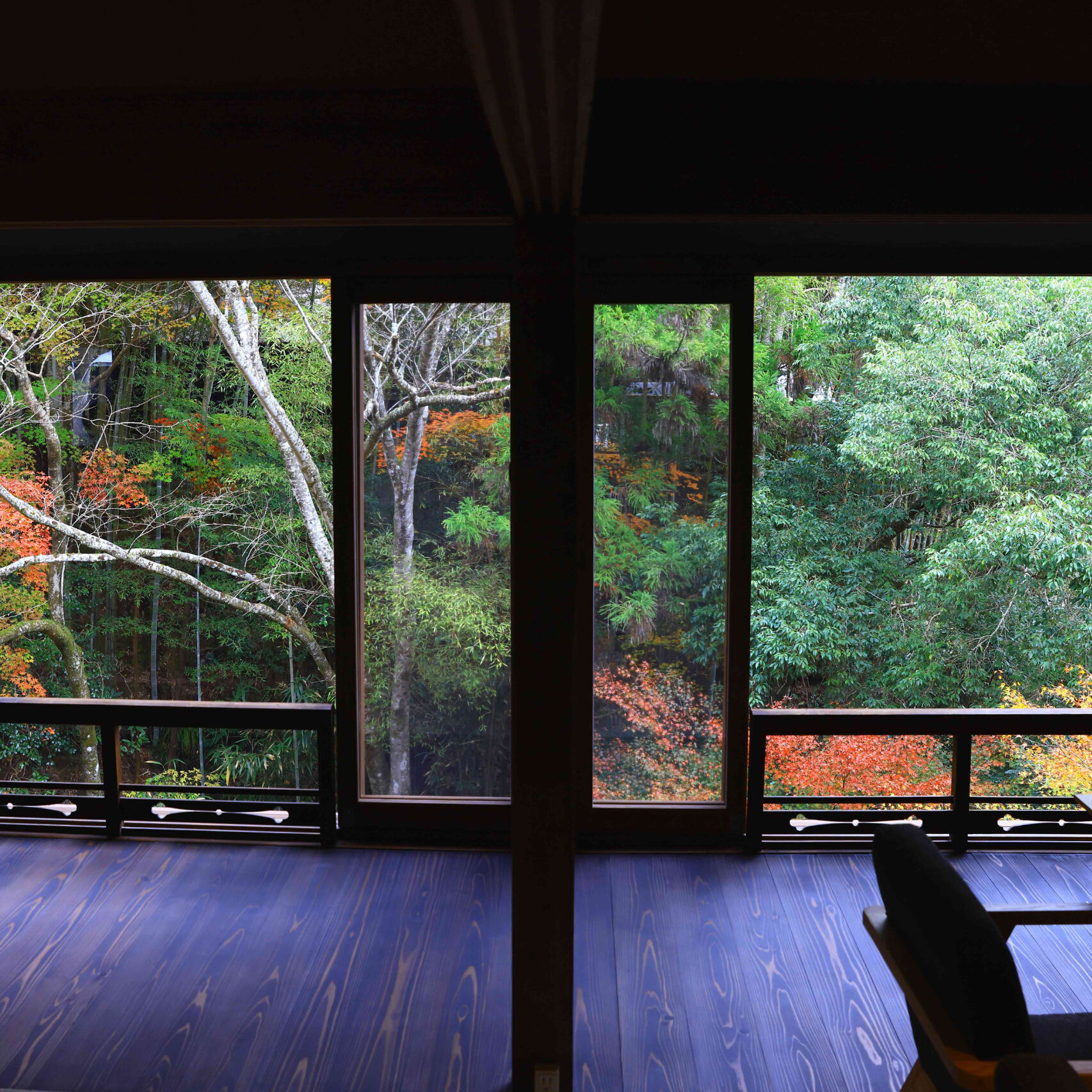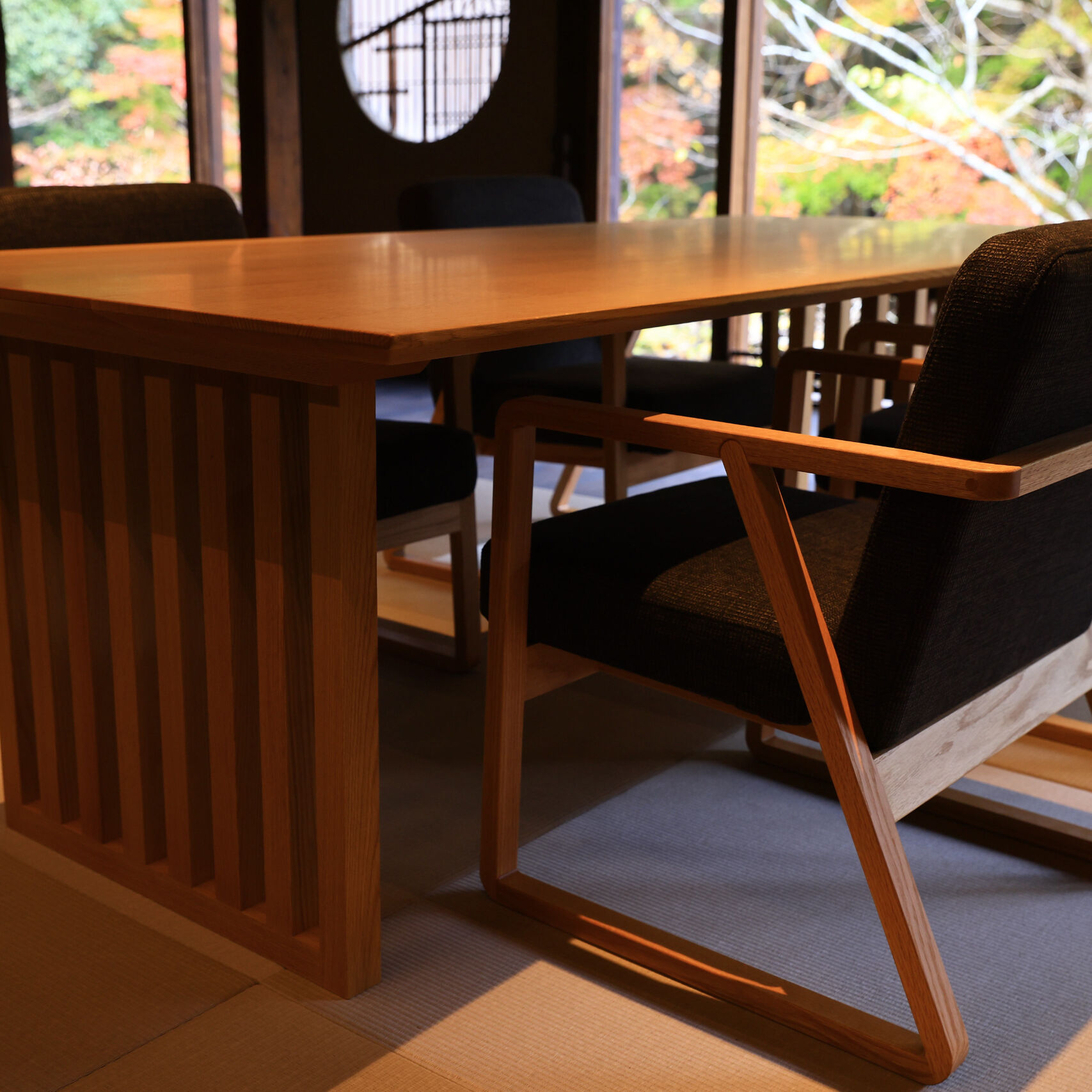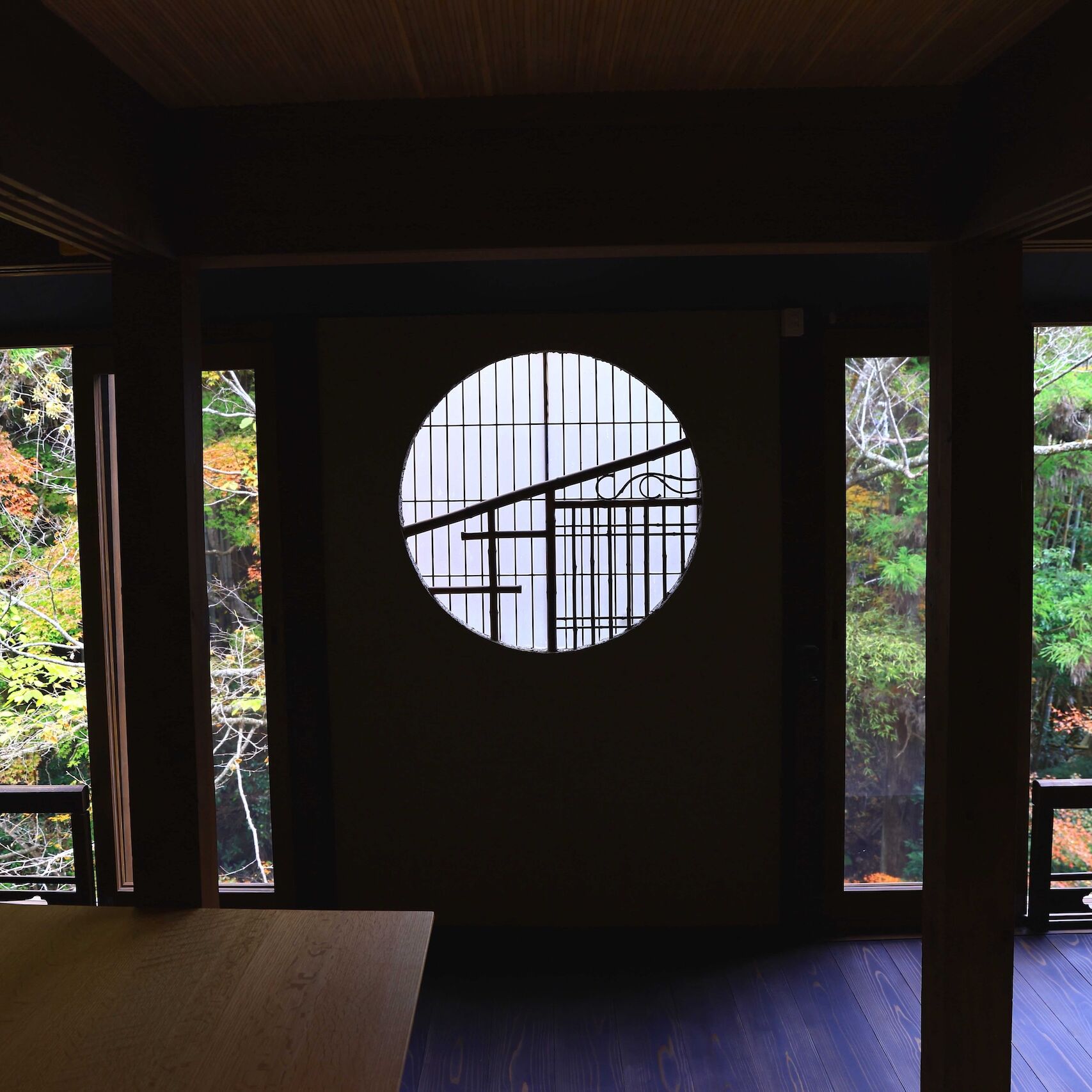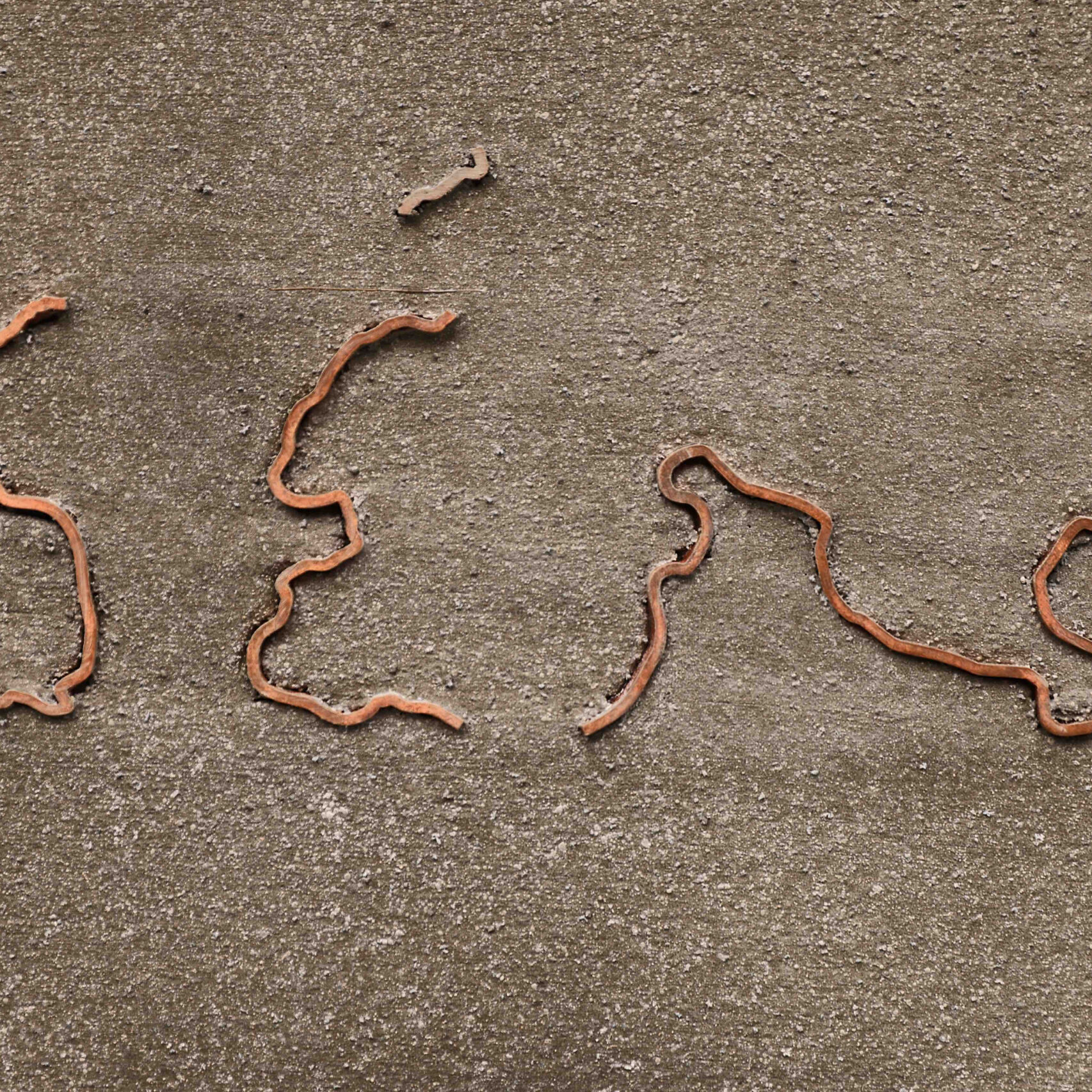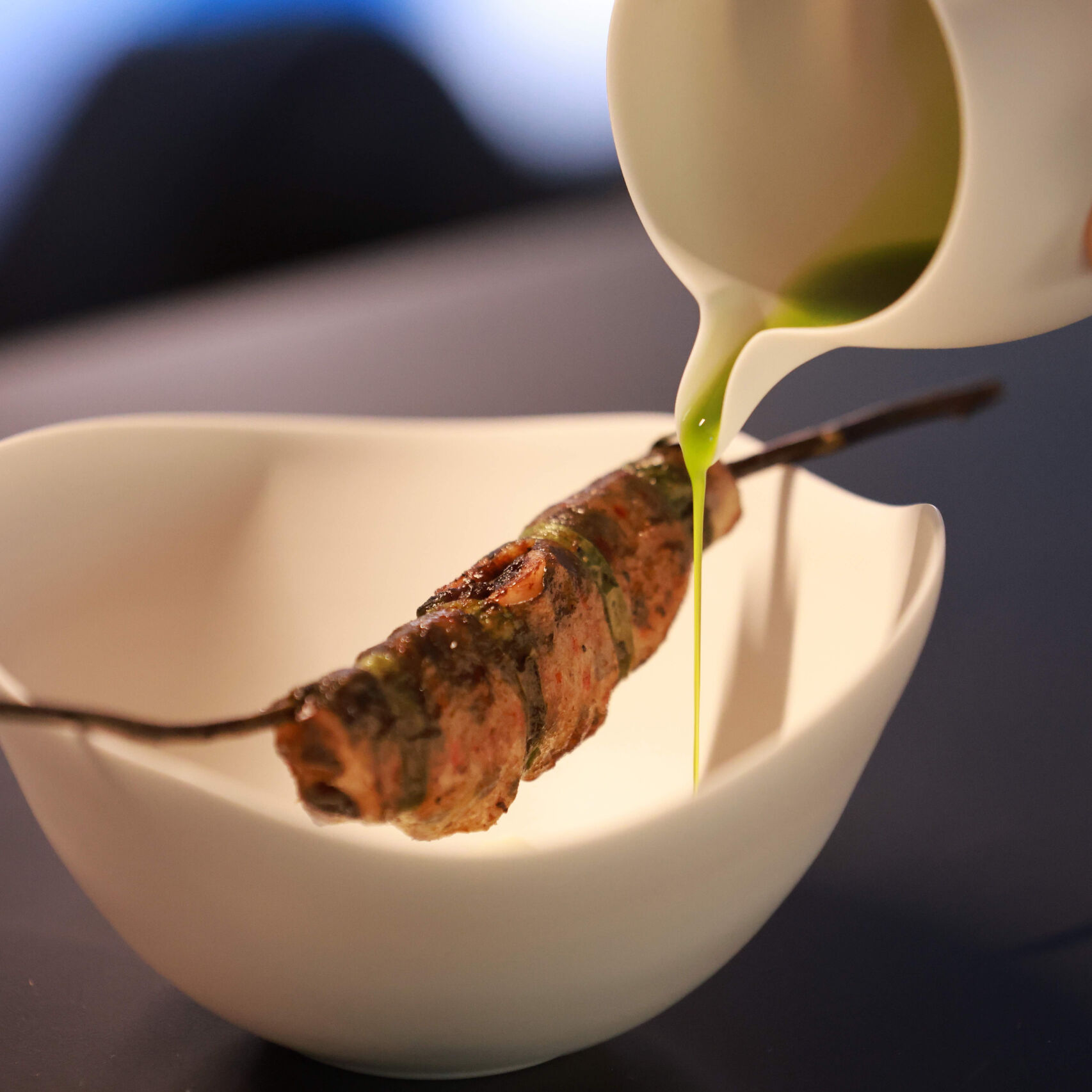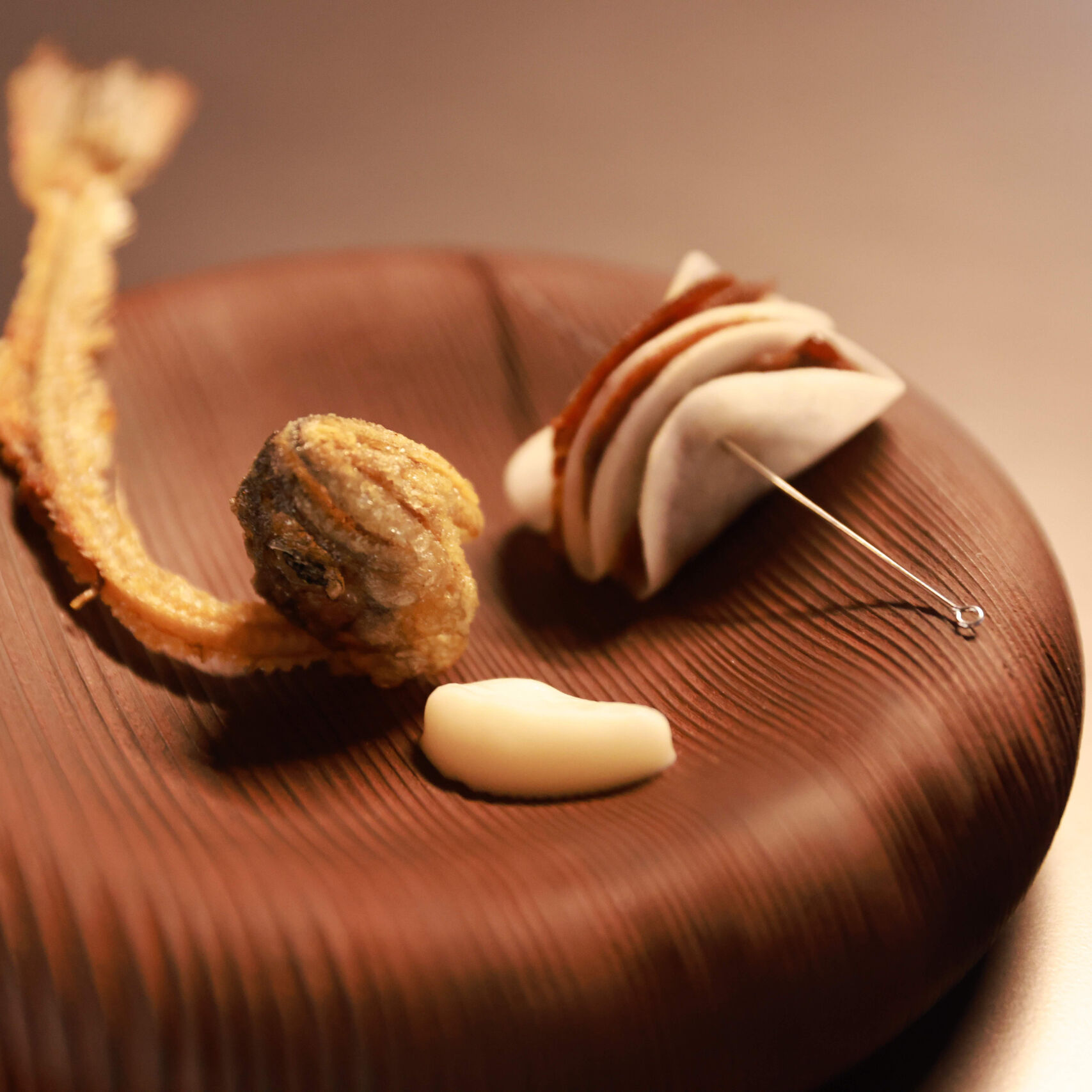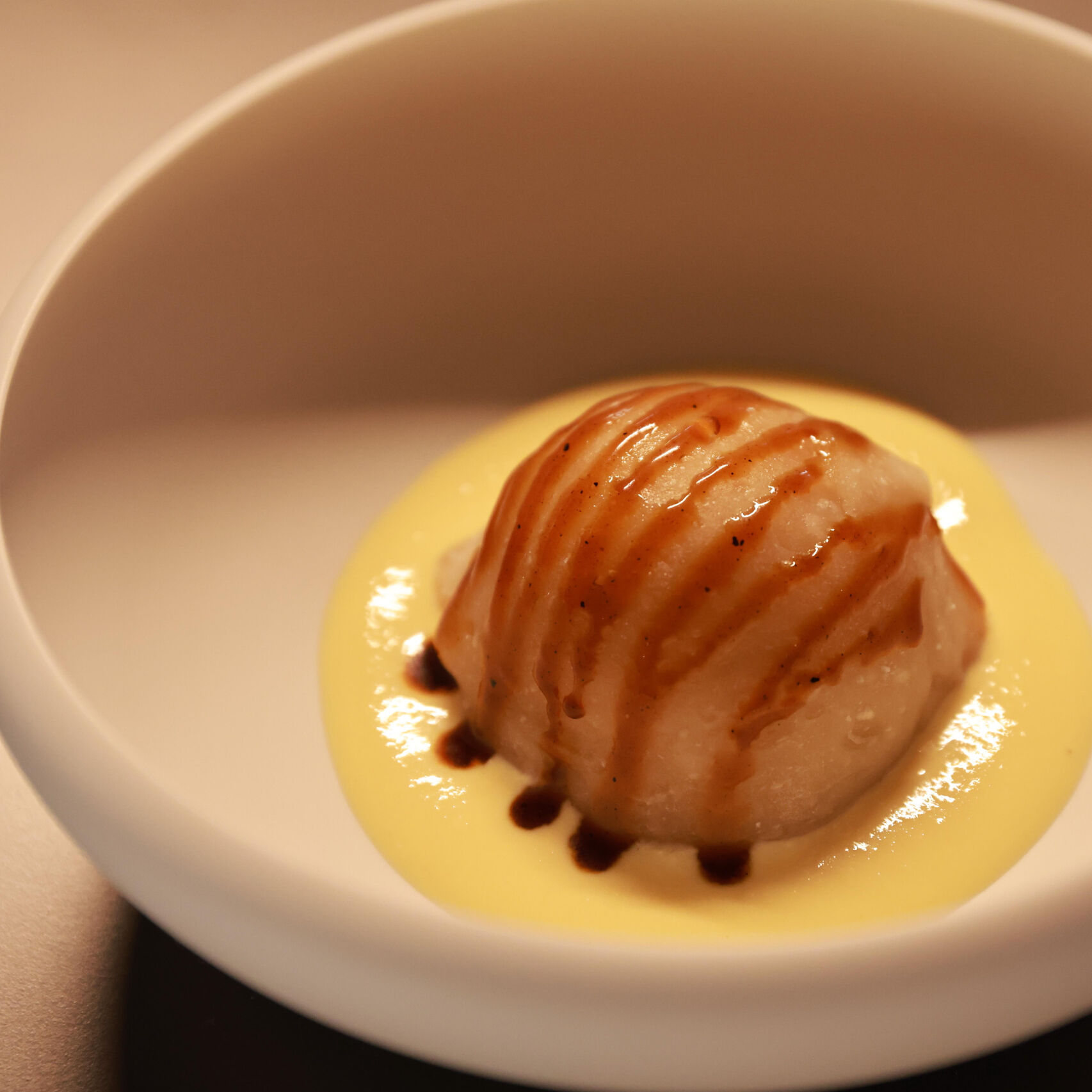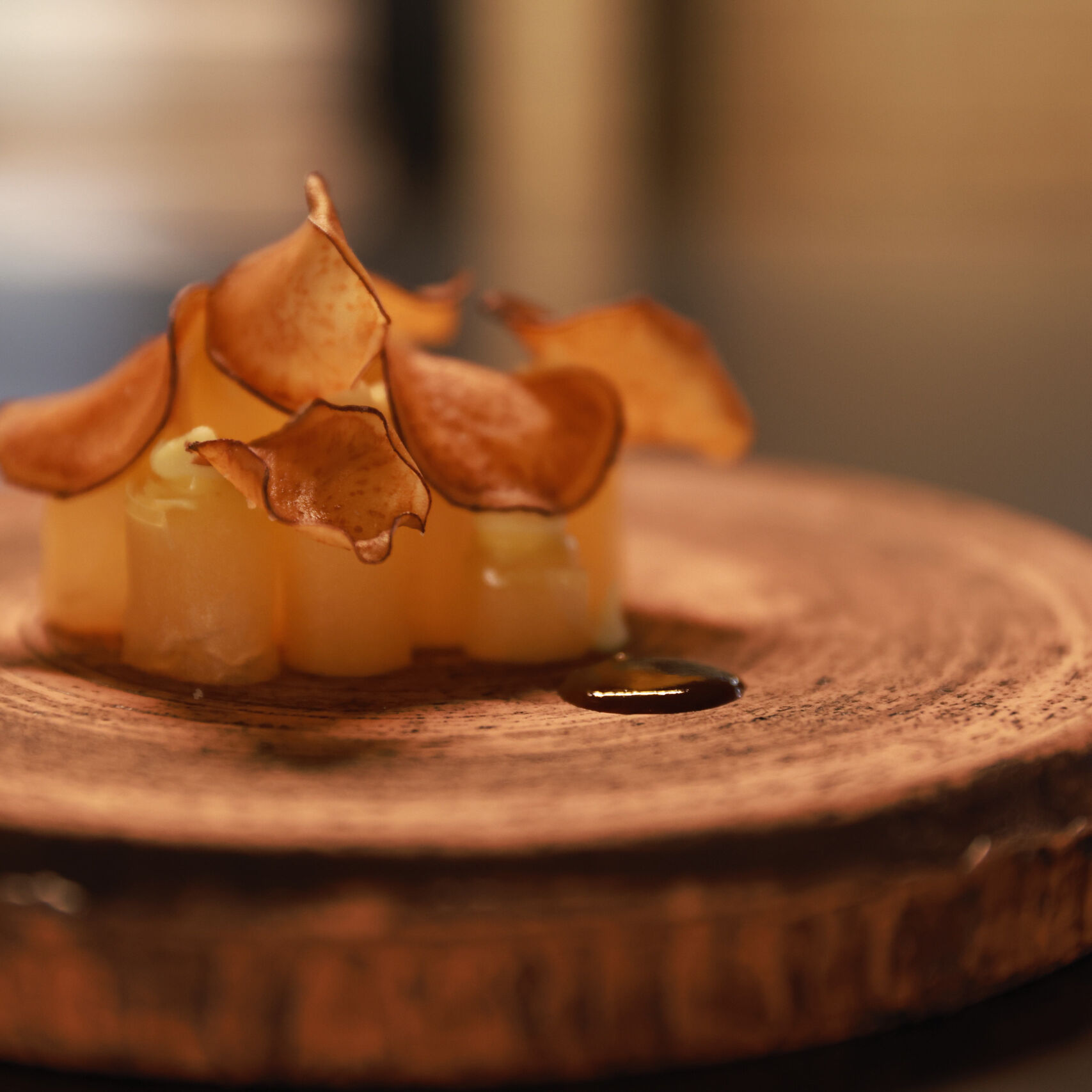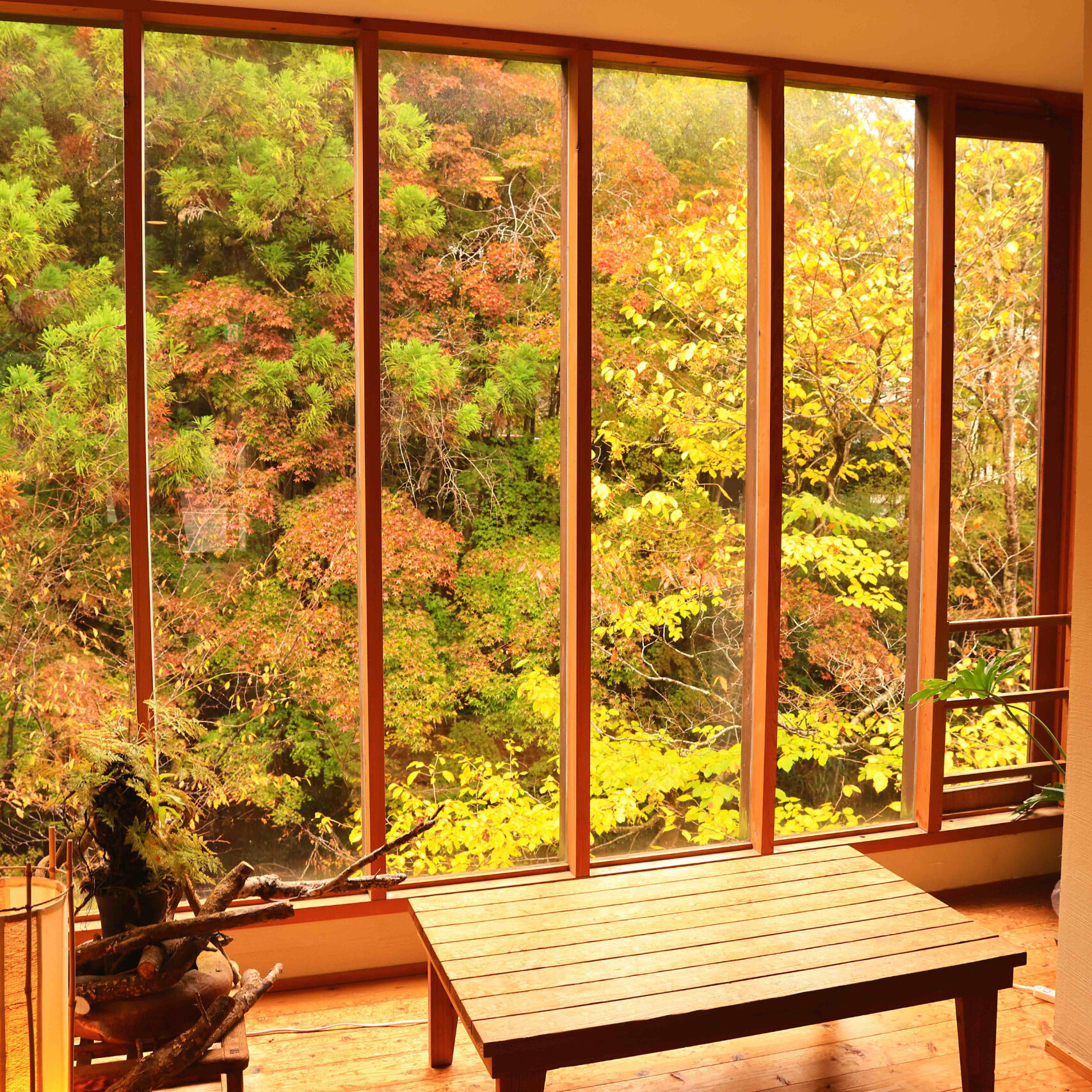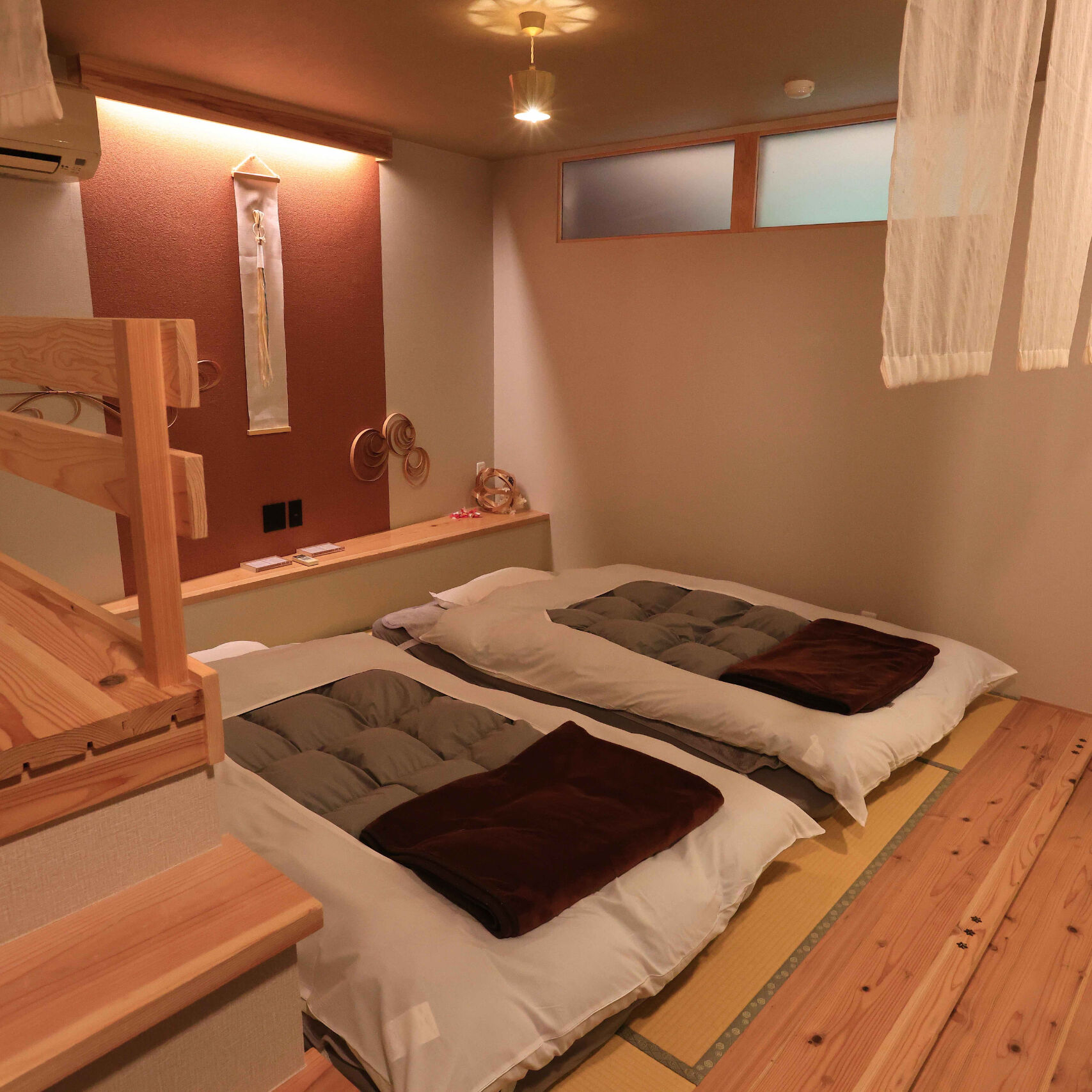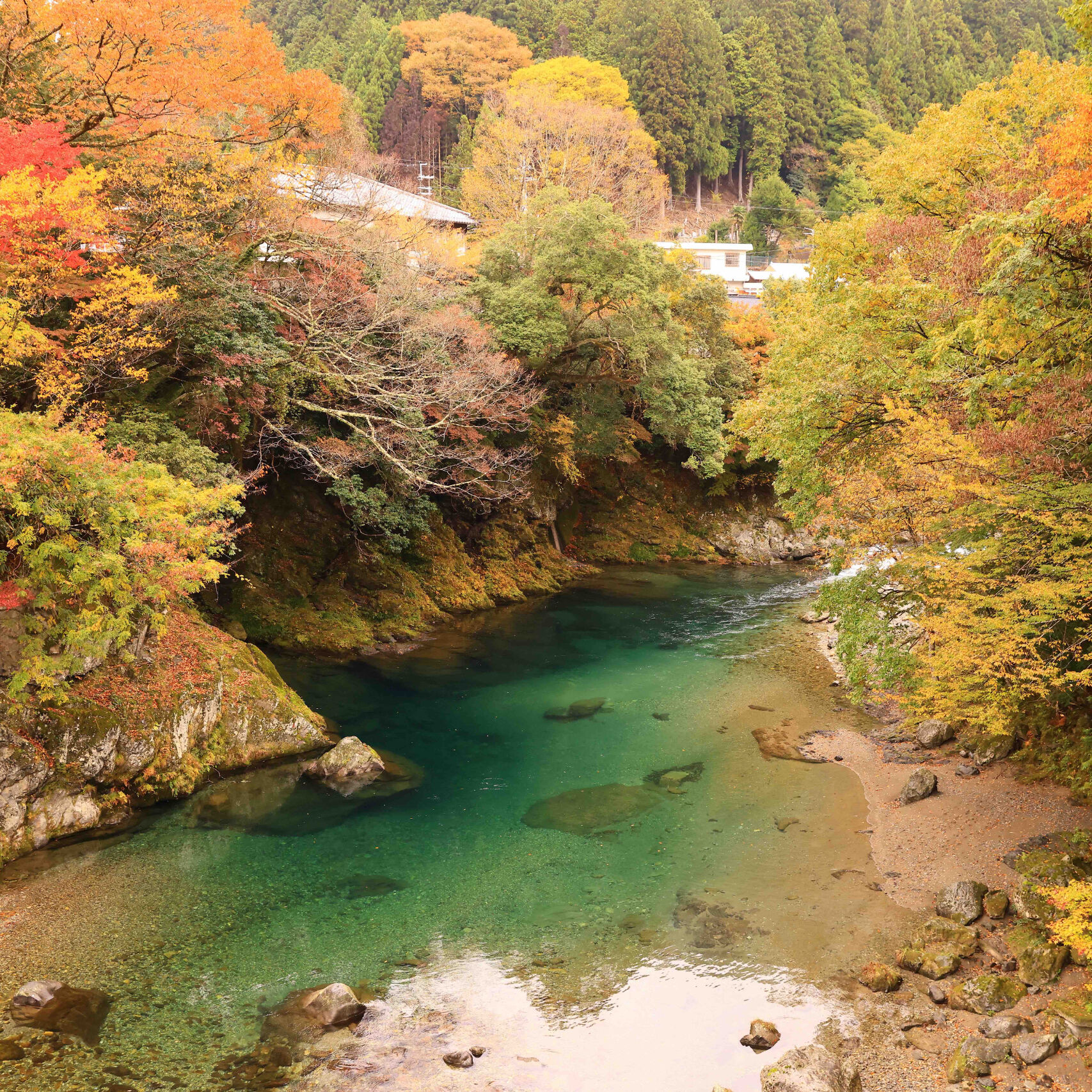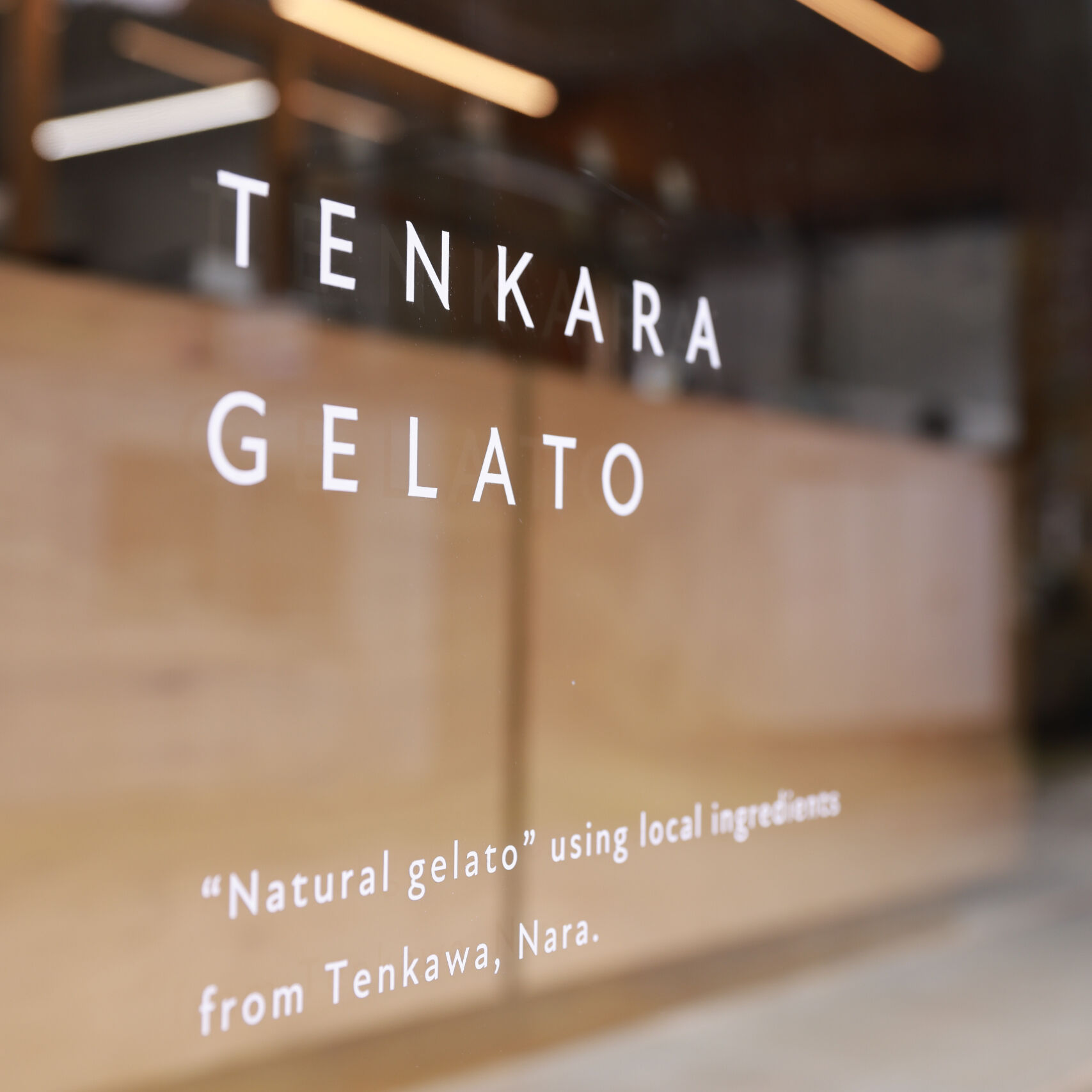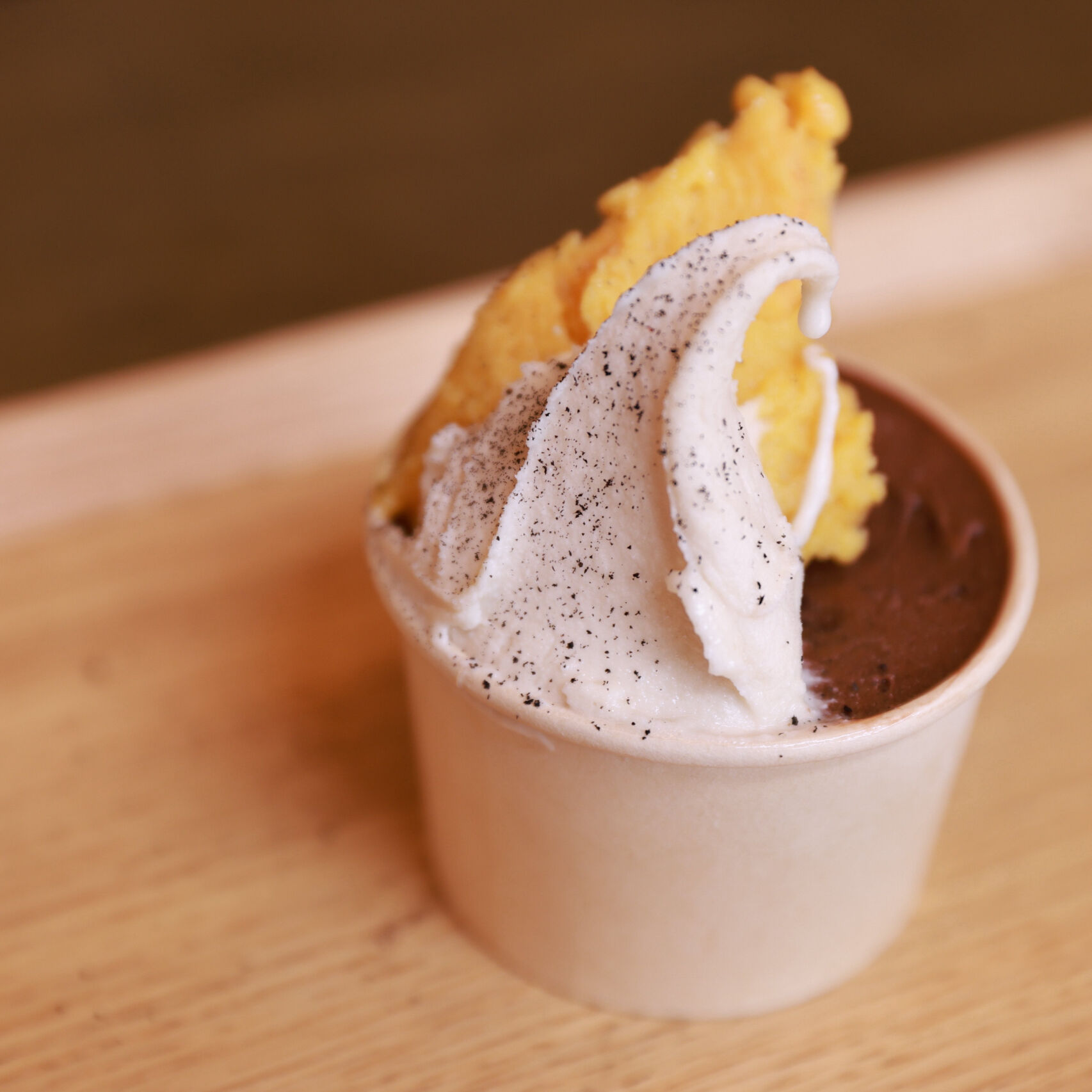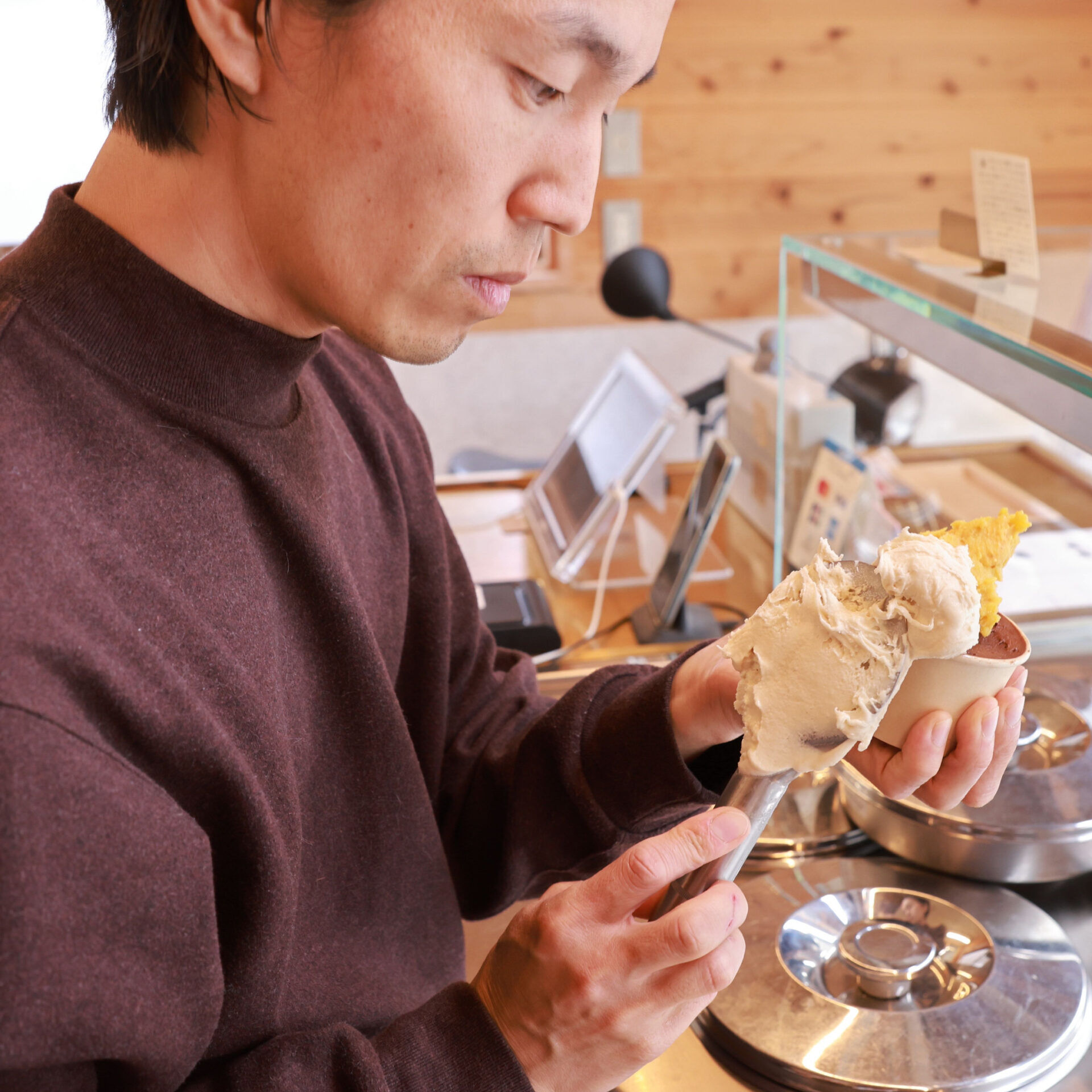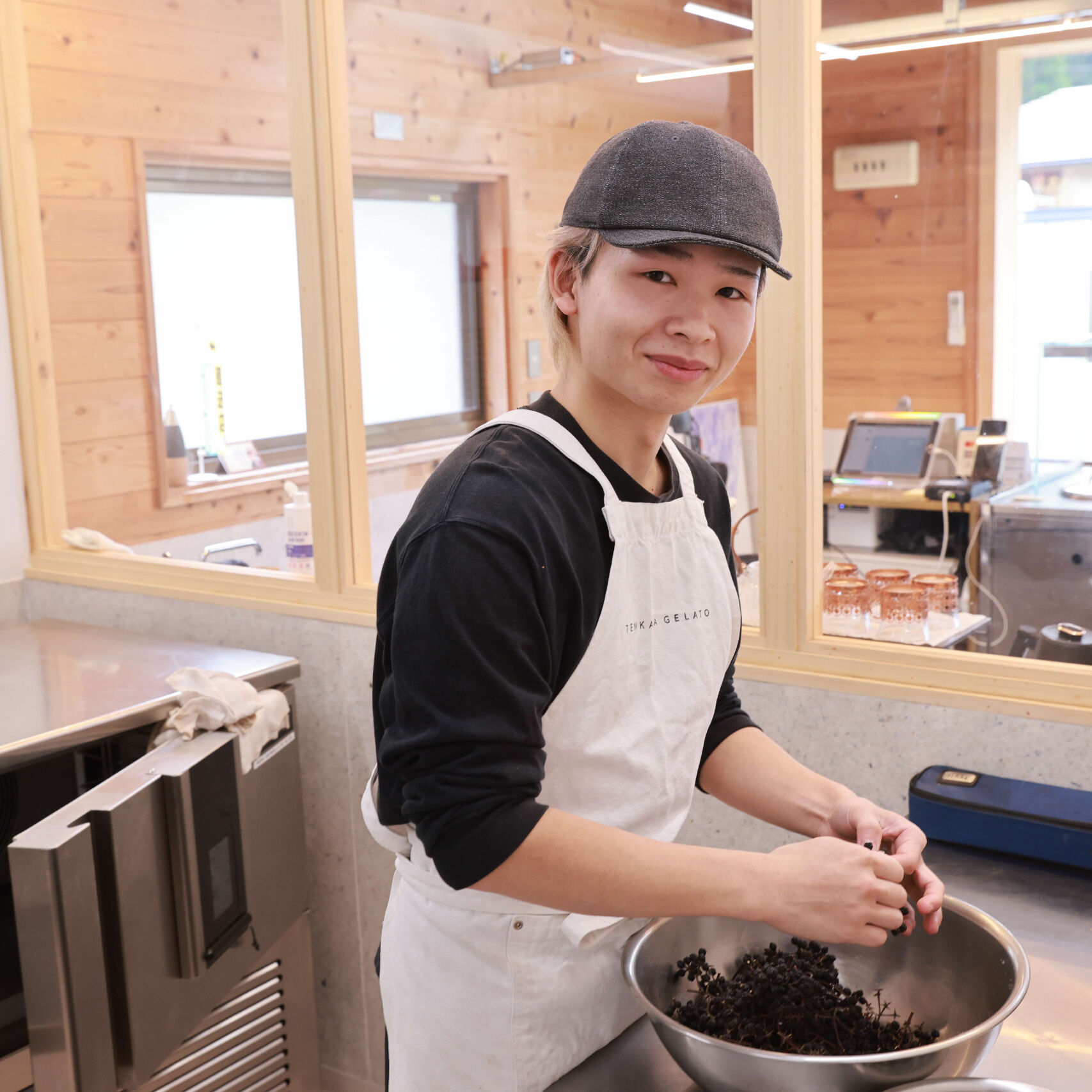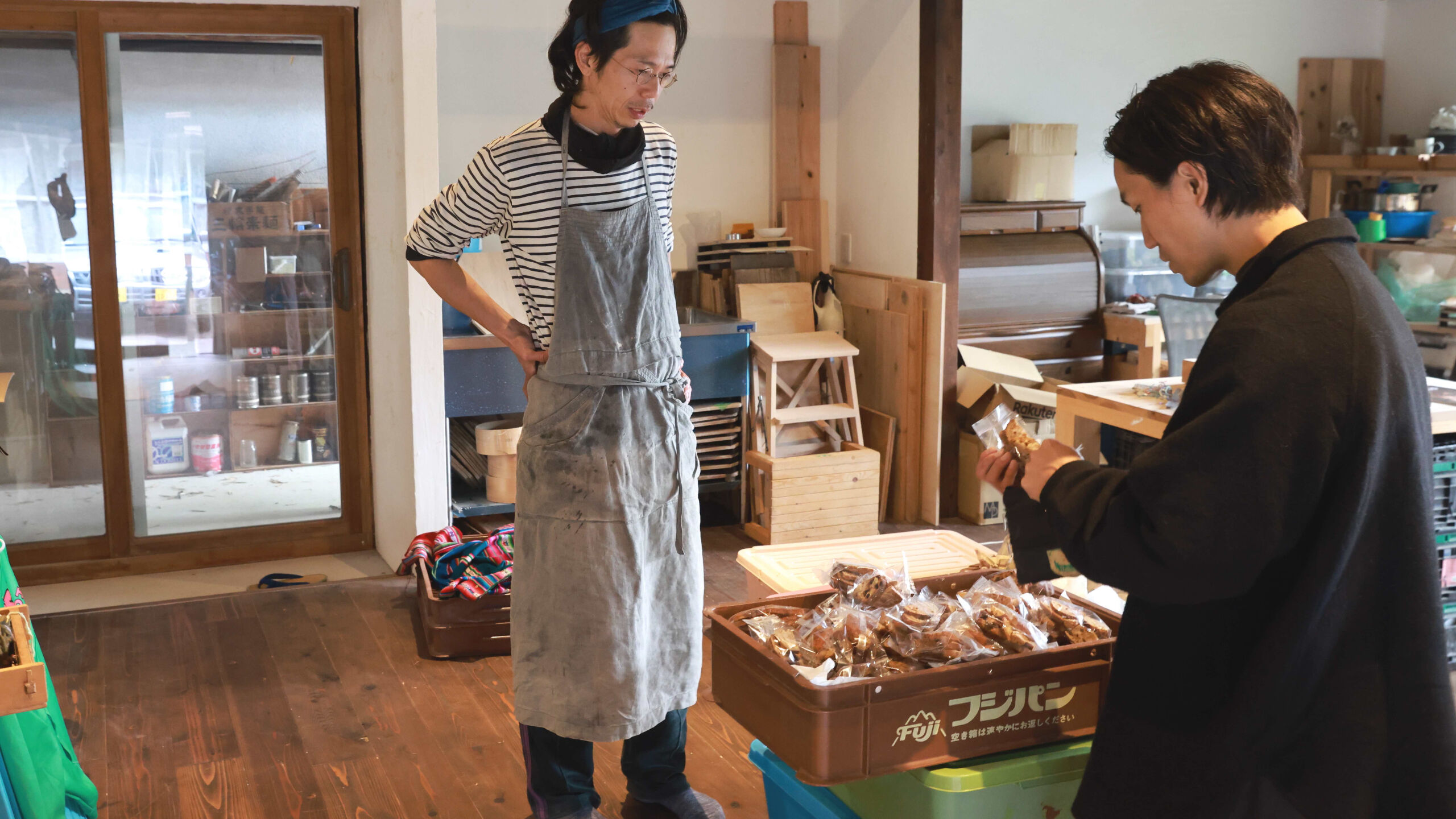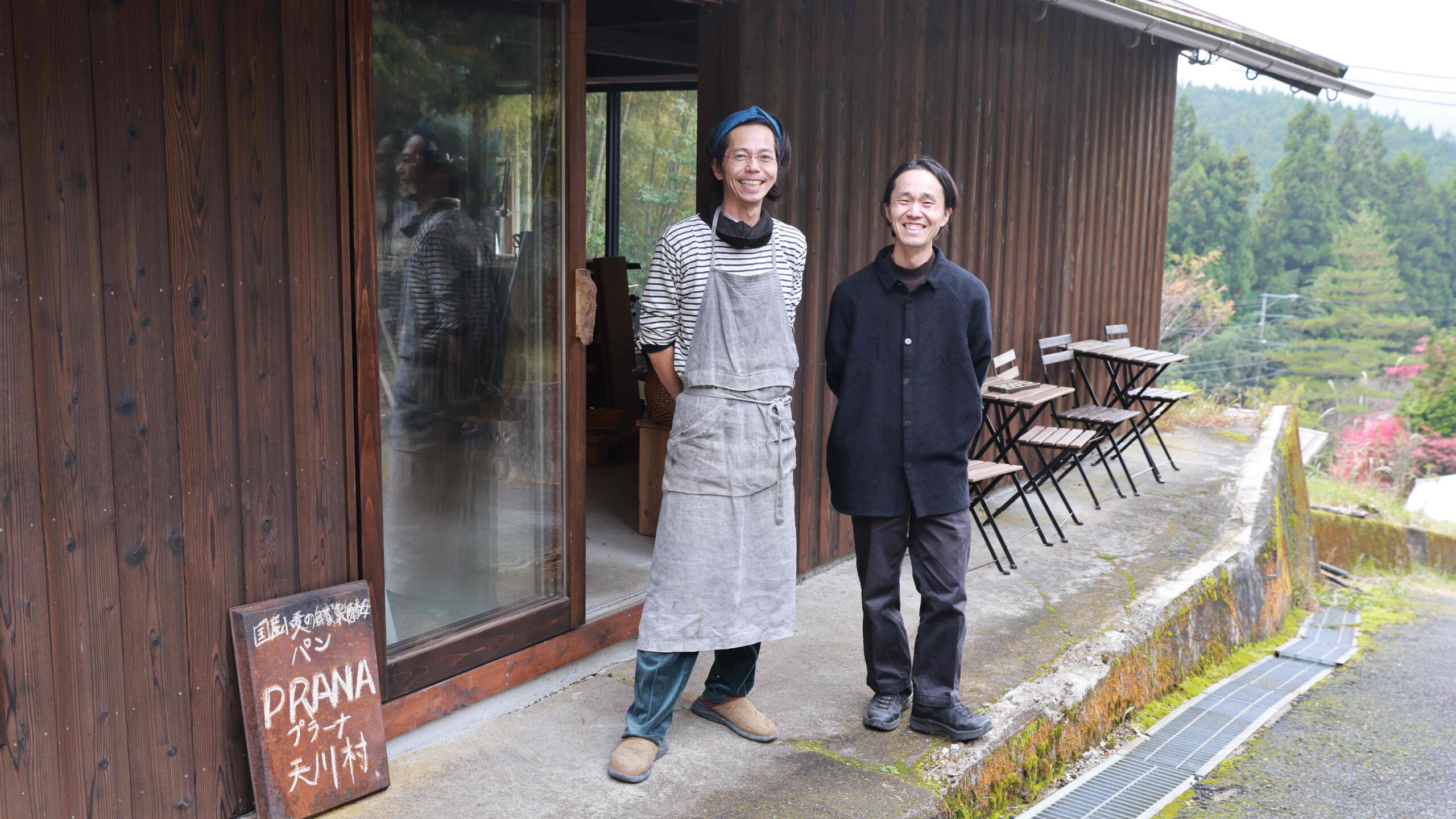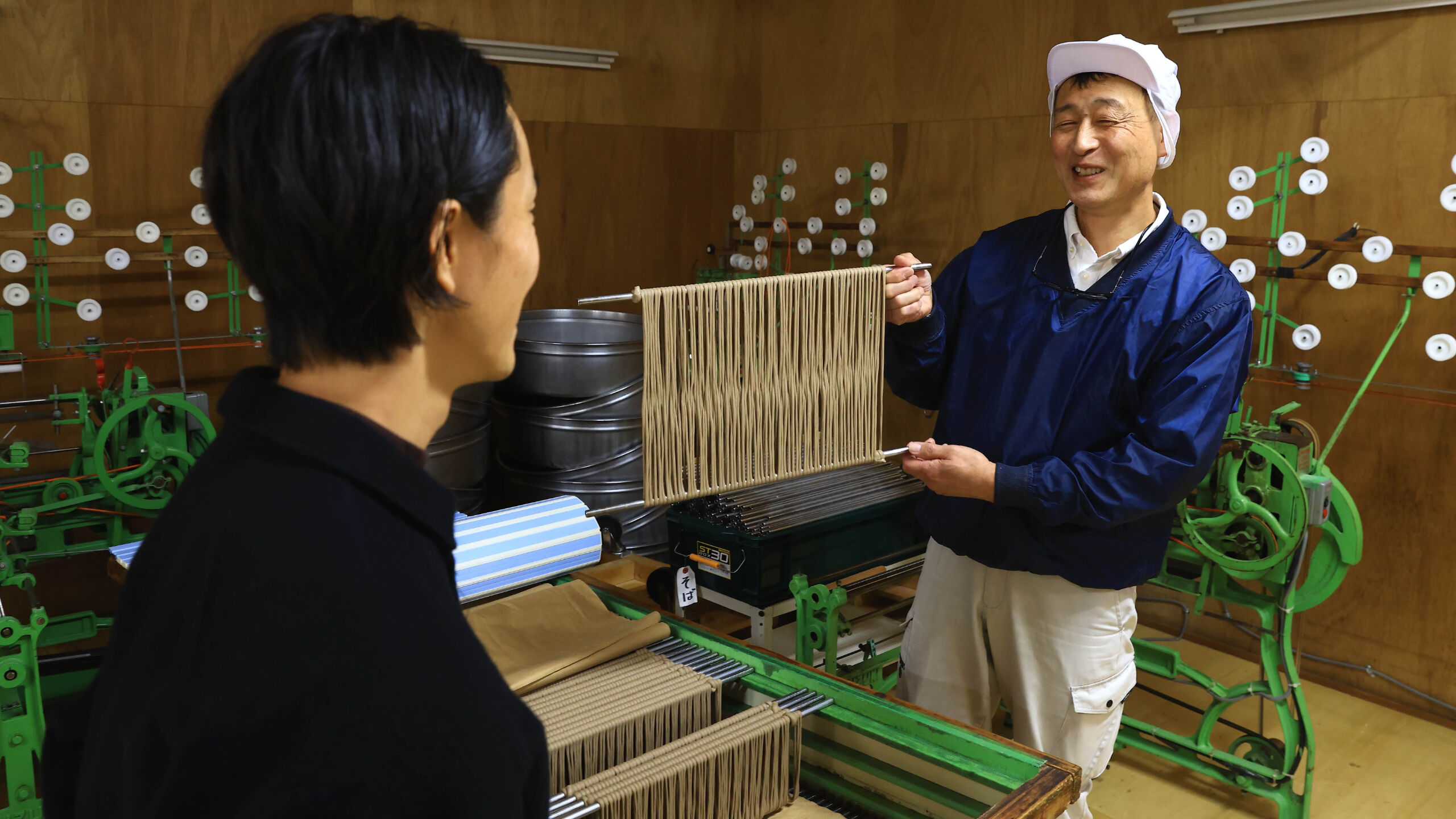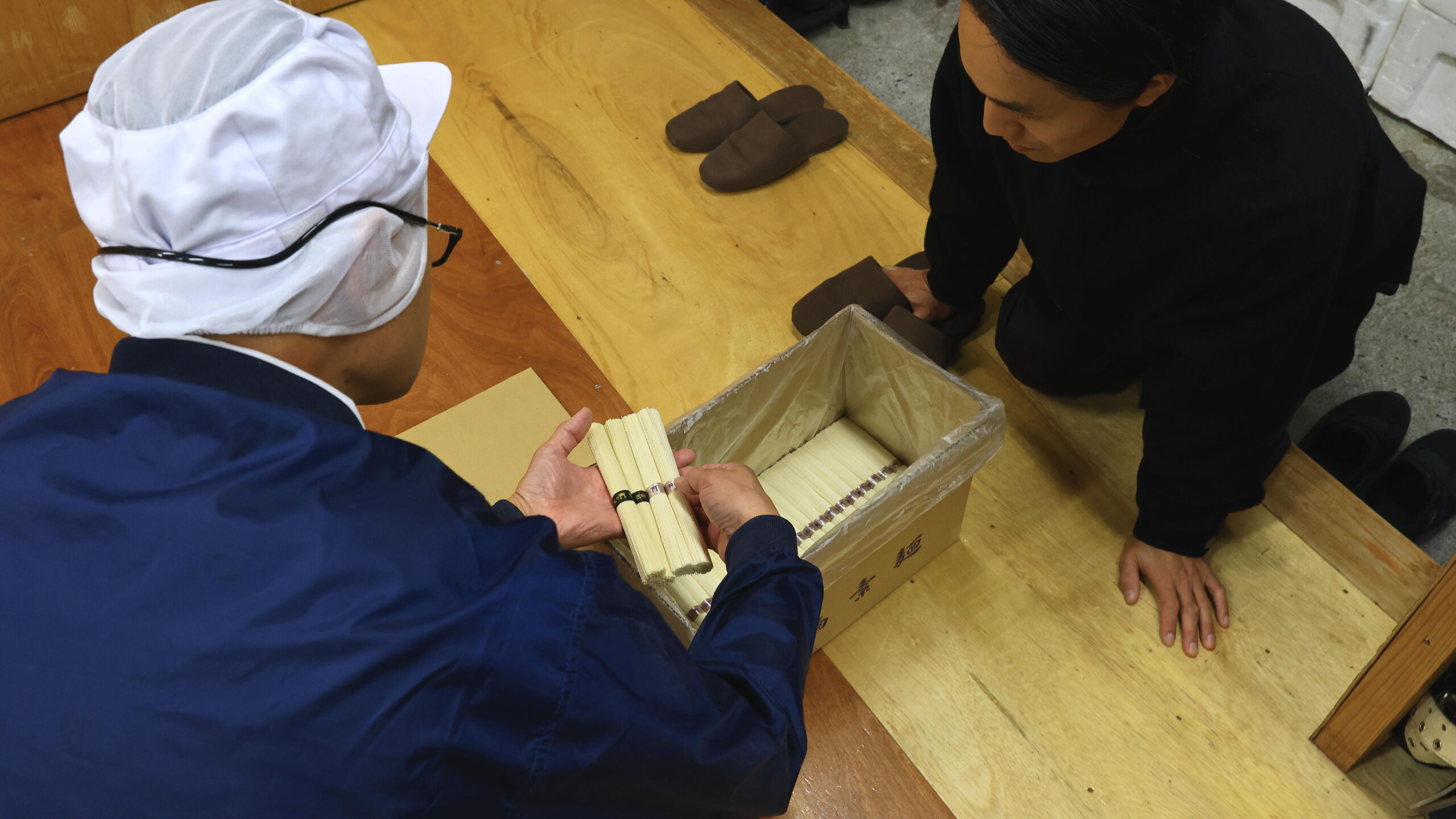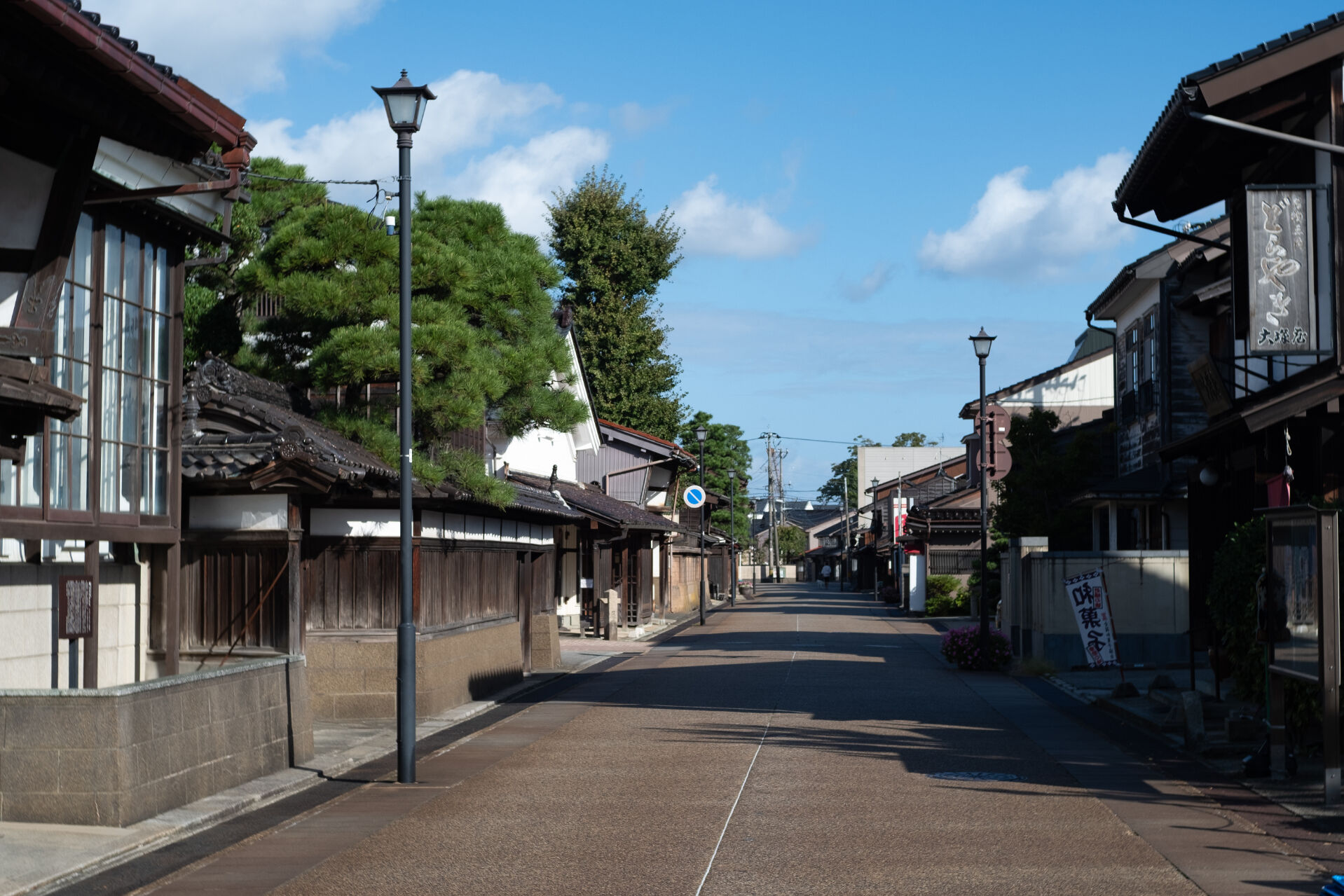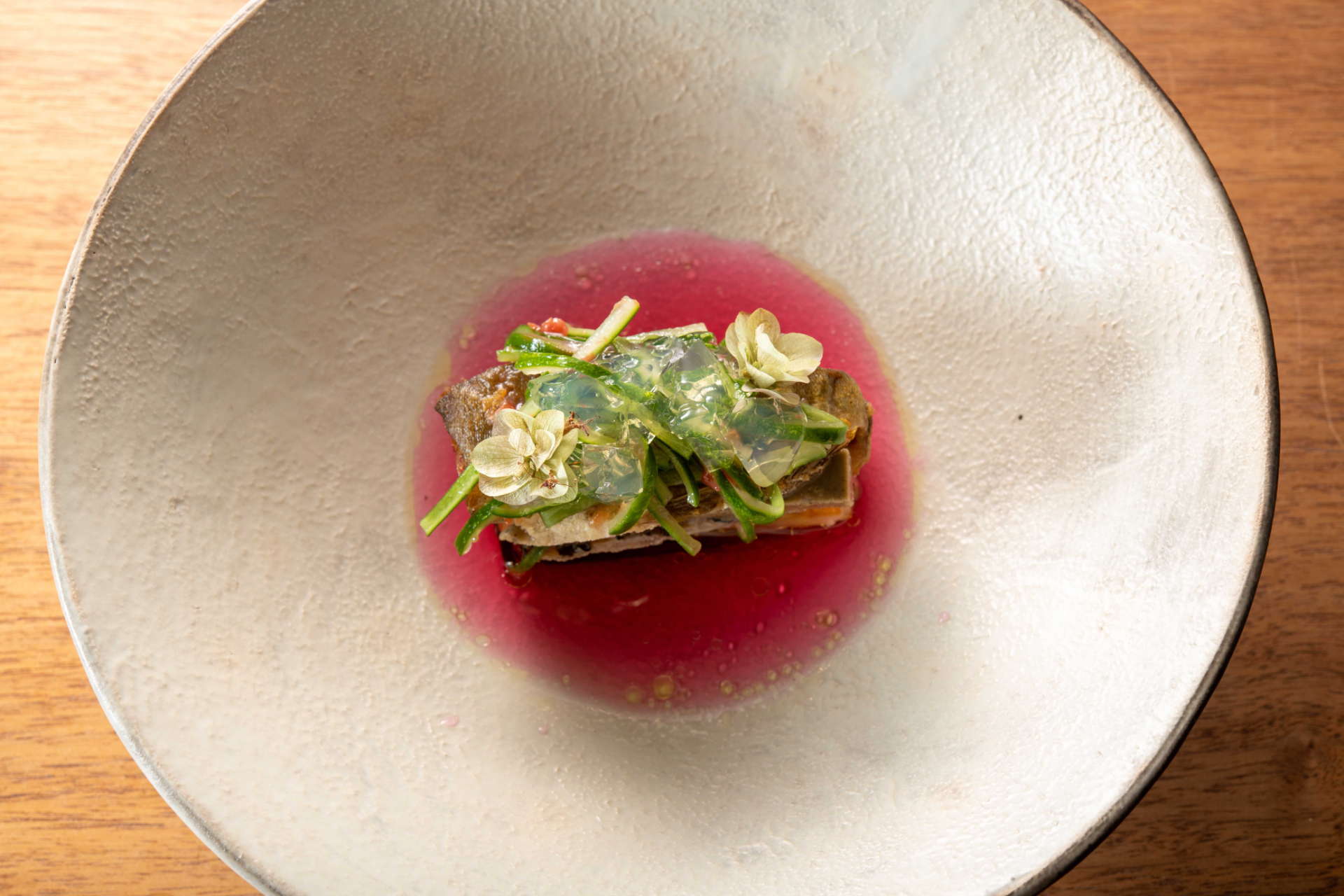Tenkawa Village is part of the UNESCO World Heritage site “Sacred Sites and Pilgrimage Routes in the Kii Mountain Range.” This sacred mountain destination includes Omine-san-ji (Omine San Temple), the fundamental training ground for Shugendo (an ancient form of mountain asceticism that combines indigenous Japanese beliefs with Buddhist practices) and the Omine Okugake-michi – a challenging sacred mountain trail stretching about 80 kilometers along the Ominesan (Omine mountain) range where Buddhist ascetics have trained for over 1200 years – a unique pilgrimage route that shares UNESCO World Heritage status with only one other pilgrimage path, the Way of St. James in Spain and France.
Now, this village is gaining recognition as a culinary destination, thanks to one remarkable chef.
Chef Toshiharu Sunayama served as sous chef at “La grenouillère” in northern France. After returning to Japan, he helped establish “Les tonnelles” in Kanazawa, which earned two Michelin stars and a green star in the Hokuriku 2021 Special Edition guide.
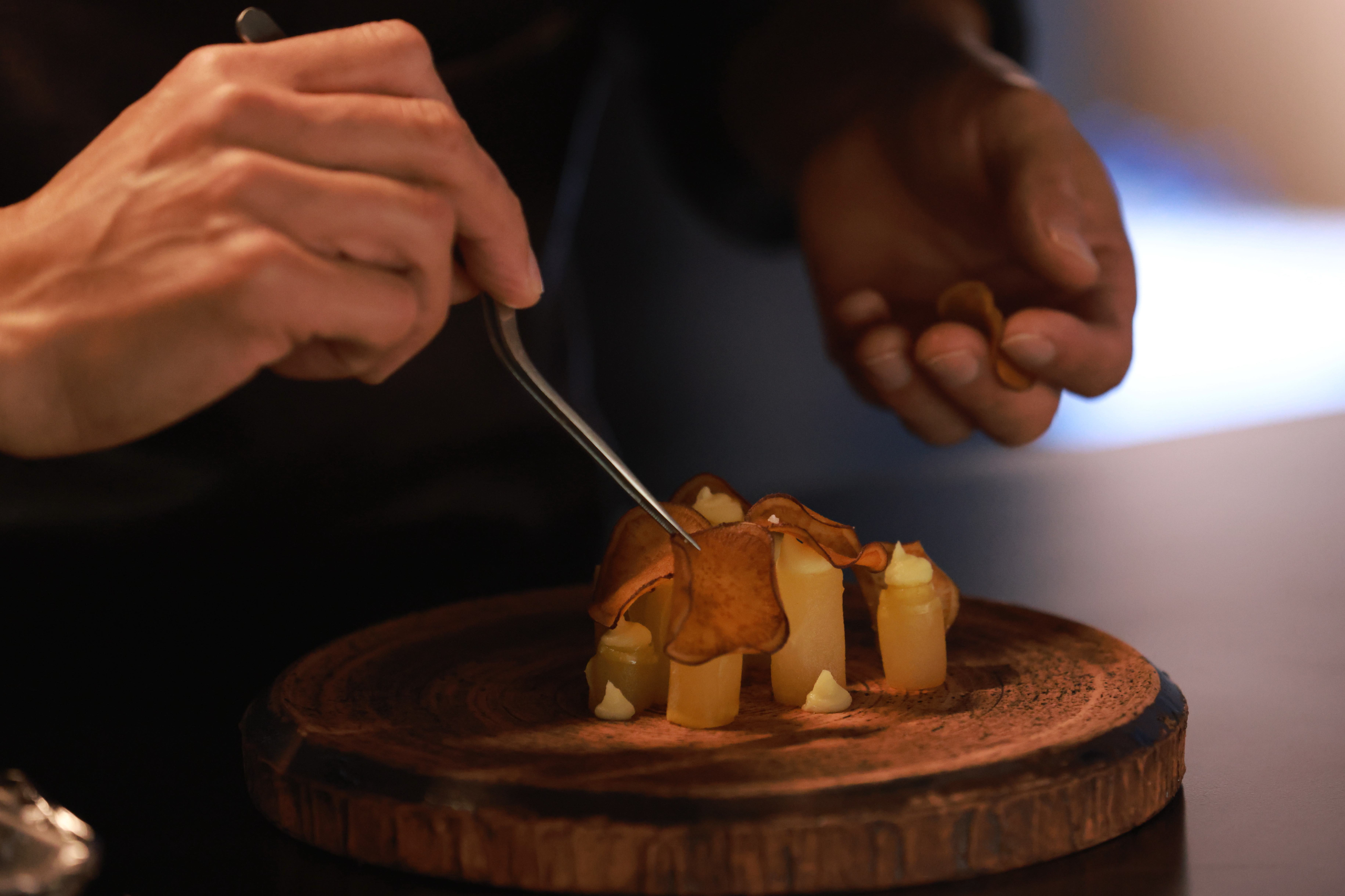
Tenkawa Village has cultivated a unique culture born from both religious ascetic practices on steep mountain trails and the traditional lifestyle of logging and river transportation. The Tennokawa (Ten no river) flows into the Kumanogawa (Kumano river) via the Totsukawa (Totsu river) before reaching the Pacific Ocean. Historically, after delivering timber downstream, villagers would bring seafood back to the village in two preserved forms: dried fish and narezushi – a traditional method of preserving fish by fermentation with rice, an ancient predecessor of modern sushi. These preserved foods became local delicacies.
Chef Sunayama has made it his mission to create course meals that embody this cultural exchange between mountain and sea, from peaks to ocean and back again. He calls this concept “Watershed Cuisine.”
The Sunayama couple’s first venture in highlighting local ingredients was “TENKARA GELATO,” which opened in October 2023. Visitors delight in these gelatos crafted by a Michelin-starred chef using ingredients from Nara and the Kii Mountains. Created by the Sunayamas and local pastry chef Haruto Horii, these gelatos have already become one of Tenkawa’s specialties.
Let us introduce some of the artisans supporting Chef Sunayama’s cuisine. Natsuki Nagayama of “prana” is a baker who uses natural yeast. They chose this profession to connect the cycle of life – from seeds sprouting in the earth to wheat becoming our source of energy. Nagayama focuses on simplicity, utilizing Tenkawa’s pure water in their breadmaking.
Mountain worship, deeply connected to the Japanese spiritual mindset, has long been preserved by those who revere nature, embrace its nurturing presence, and seek spiritual training within it. This reverence for mountains has historically shaped local food culture, with practitioners developing preservation techniques and discovering edible wild plants during their ascetic training.
Within this tradition, Chef Sunayama and Restaurant Manager Ayako are beginning to weave their new story of “Watershed Cuisine.”
◼️sén
267 Kawai, Tenkawa Village, Yoshino District, Nara Prefecture
Website: https://sen-tenkawa.com/
Access: About 2 hours by car from Nara City
Text/Shunji Miyagawa
Photography/Kenji Sakamoto
Translation/Yumiko Sushitani
Related Posts
2026-01-30
Living History: The Eternal Spirit of the Kitamaebune in Higashi-Iwase, Toyama
In the northern reaches of Toyama City lies Higashi-Iwase, a port town where…
2025-05-25
Italian Cuisine Shaped by Sea and Soil —From an Island of Grace to a Gastronomic Island Capital—
美味が零れ落ちそうな野菜。秩父市「クチーナ サルヴェ」坪内浩シェフのスペシャリテは、自家農園で収穫したばかりの「季節の野菜サラダ」です。…
2025-08-14
The Bounty of the River in “Little Kyoto of Oku-Mino”
The town of Gujo Hachiman in Gifu Prefecture, with the crystal-clear Yoshida…


